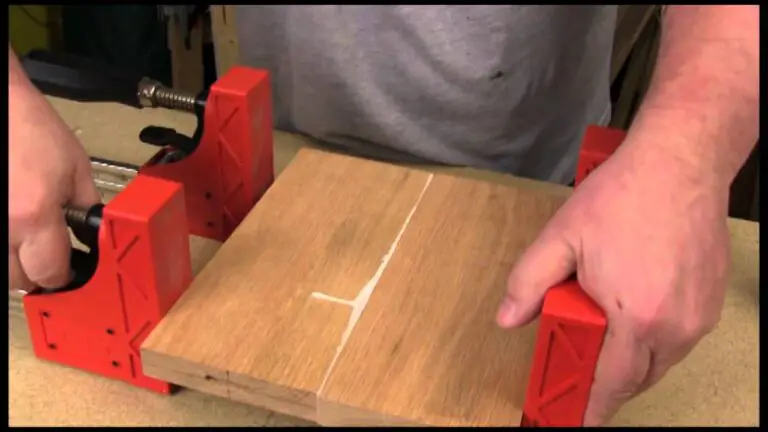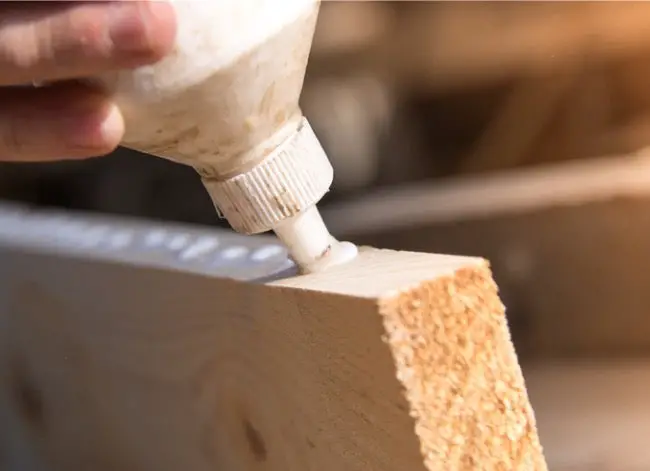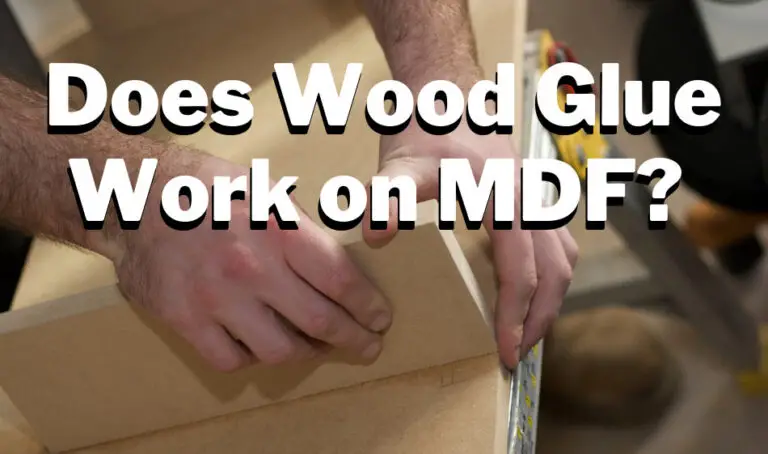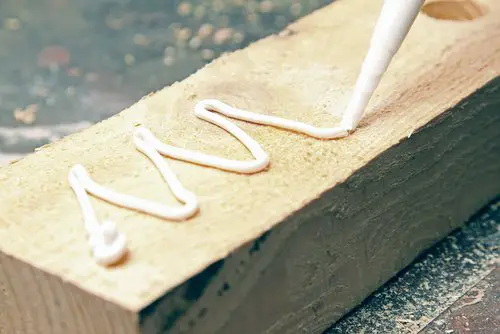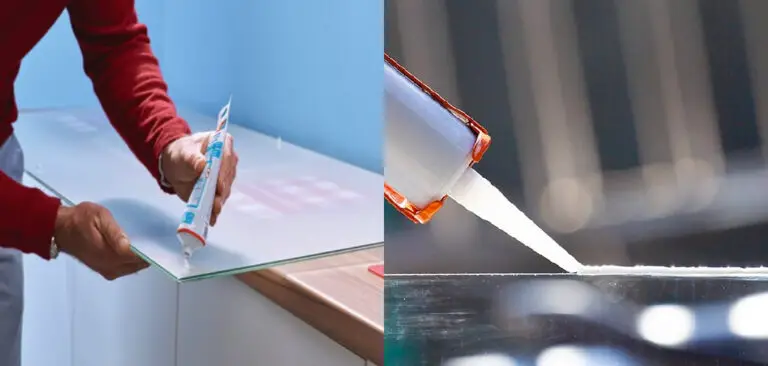Does Wood Glue Expire
Wood glue is an important part of many woodworking projects. It is used to bond two pieces of wood together and can be a very strong adhesive. However, like all adhesives, wood glue has a limited shelf life and will eventually expire.
An expired wood glue will not be as effective as a fresh one and may not work at all. If you are unsure if your wood glue is still good, it is best to test it before using it on your project.
Woodworking is a hobby that many people enjoy. One of the most important tools in woodworking is wood glue. Wood glue is used to attach two pieces of wood together.
It is important to use the right type of glue for the project you are working on. There are different types of wood glues, and each has its own expiration date.
One type of wood glue is PVA (polyvinyl acetate) glue.
This type of glue is water-based, and it dries clear. PVA glue is perfect for projects where you do not want the glue to be visible. This type of glue has a shelf life of about two years.
After two years, the PVA glue will begin to degrade and will not work as well. If you have PVA glue that is more than two years old, it is best to throw it away and buy new glue.
Another type of wood glue is epoxy resin adhesive.
This type of adhesive is much stronger than PVA glue and can be used for heavier duty projects. Epoxy resin adhesives have a shorter shelf life than PVA glues—about one year. Once epoxy resin adhesive starts to degrade, it will become brittle and will not work as well.
If you have epoxy resin adhesive that is more than one year old, it’s best to throw it away and buy new adhesive .
Gorilla Wood Glue Shelf Life
Gorilla wood glue is one of the most popular adhesives on the market. It’s known for its high strength and versatility, making it ideal for a variety of applications. But like all products, it has a limited shelf life.
Here’s what you need to know about storing and using Gorilla wood glue.
Gorilla wood glue has a shelf life of two years when stored in a cool, dry place. After that, the adhesive will start to break down and lose its effectiveness.
So if you have a bottle of Gorilla wood glue that’s been sitting in your garage for a few years, it’s time to toss it out and get a new one.
When using Gorilla wood glue, be sure to read the instructions carefully. The adhesive sets quickly, so you need to work fast once you’ve applied it to your project.
Also, make sure the surfaces you’re bonding are clean and free of debris; otherwise, the bond may not be as strong as it should be.
If you follow these tips, Gorilla wood glue can be a great addition to your DIY arsenal. Just remember to keep an eye on the expiration date and use it before it dries out!
Read: How Long Does Gorilla Wood Glue Take to Dry
Can You Use Expired Glue
Most people have a bottle of glue somewhere in their home, and many of us have had that glue for quite some time. So what happens when the glue expires? Can you still use it?
The answer is maybe. If the glue has been stored in a cool, dry place, it may still be usable. However, if the glue has been exposed to heat or sunlight, it is likely that the adhesive properties have degraded and it will no longer work as well as it once did.
If you’re not sure whether your expired glue will still work, test it out on a small piece of paper before using it for your project. If the glue holds the paper together well, then it should still be fine to use. However, if the bond between the paper and the glue is weak or nonexistent, then you’ll know that it’s time to toss out your old bottle of glue and get a new one.
How Long Does Wood Glue Take to Dry
Wood glue is an essential product for many woodworking and carpentry projects. It is typically used to join two pieces of wood together, but can also be used to repair cracks or damaged surfaces. Glue is a very versatile material, but it does have its limitations.
One of the most important things to know about glue is how long it takes to dry.
Most wood glues take around 24 hours to fully cure. This means that the bond will be strong enough to hold the pieces of wood together, but it will still be slightly flexible.
This flexibility is important in many applications, as it allows the glued joint to move slightly without breaking. After 24 hours, the bond will continue to strengthen over time and will eventually become brittle and break if flexed too much.
There are some types of wood glue that claim to have a shorter drying time, such as instant-bond or super-fast-dry glues.
These products can be convenient when you’re in a hurry, but they usually don’t provide as strong of a bond as traditional glues. In most cases, it’s best to give the glue plenty of time to dry before putting any weight on the joint or using the piece for its intended purpose.
Read to know: How Long Does White Glue Take to Dry
Best Way to Store Wood Glue
When it comes to storing wood glue, there are a few things you need to keep in mind. First of all, you need to make sure that the container is airtight. This will prevent the glue from drying out and becoming unusable.
Secondly, you need to store the glue in a cool, dark place. Sunlight and heat can cause the glue to deteriorate over time. Finally, if you’re not planning on using the glue for a while, it’s best to refrigerate it.
This will help extend its shelf life.
With these tips in mind, you should have no problem storing wood glue properly and keeping it in good condition for years to come!
Is Wood Glue Good After Freezing
Wood glue is an adhesive used to tightly bond pieces of wood together. It is made from a mixture of resins and solvents that evaporate as the glue dries, leaving behind a strong bond.
While wood glue is typically very reliable, there are some conditions that can cause it to fail.
One of these is freezing temperatures.
When wood glue freezes, the water in the adhesive can expand and cause the bonds between the molecules to break down. This makes the glue less effective and can eventually lead to it failing entirely.
If you live in an area with cold winters, it’s important to take steps to protect your wood glue from freezing temperatures. You can do this by storing it in a warm, dry place or by keeping it in a sealed container with desiccant packets (which absorb moisture).
If your wood glue does freeze, you’ll need to thaw it out slowly before using it.
Never try to force thawing by heating up the adhesive, as this could damage the structure of the molecules and make the glue less effective.
Read to find good one: Is Wood Glue Good After Freezing
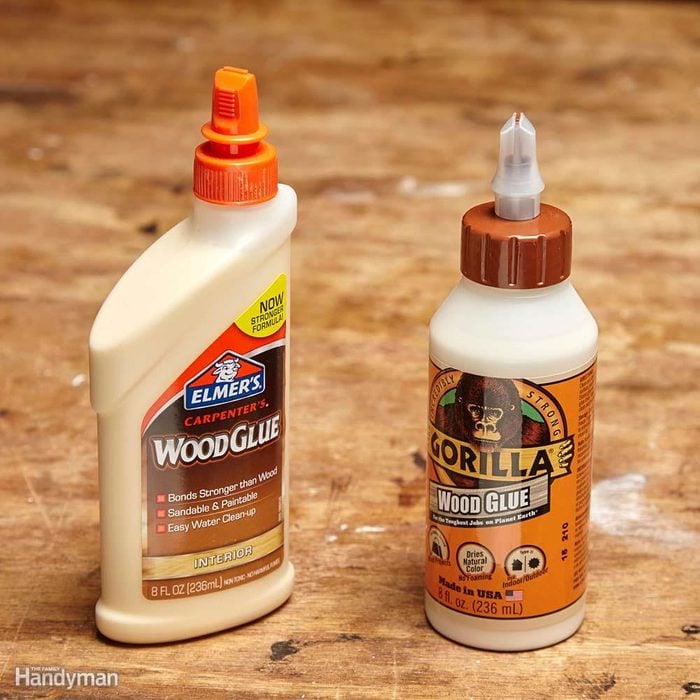
Credit: www.familyhandyman.com
How Can You Tell If Wood Glue is Bad?
Wood glue is an essential item for any woodworker or DIYer. But like any other product, it can go bad over time. Here are a few ways to tell if your wood glue is bad:
The first way to tell if your wood glue is bad is by its appearance. If the glue is discolored or has changed consistency, it’s probably time to get rid of it. Another way to tell if the glue is bad is by smell.
If the glue has a sour or musty smell, it’s no longer good to use.
If you’re not sure whether or not your wood glue is still good, test it out on a scrap piece of wood before using it on your project. If the glue doesn’t hold or dries too slowly, toss it and get a new bottle.
Bad wood glue can ruin your project, so it’s important to be able to spot it and get rid of it before you start working with it. With these tips, you should be able to tell if your wood glue has gone bad and needs to be replaced.
Read also: Does Titebond Wood Glue Go Bad?
Can You Use Out of Date Wood Glue?
It’s not recommended that you use out of date wood glue, as it may not perform as well as fresh glue. Out of date glue may be less effective at bonding surfaces together, and may not be as strong or durable as newer glue. If you’re unsure whether your wood glue is still good to use, it’s best to err on the side of caution and get a new bottle.
What is the Shelf Life of Titebond Wood Glue?
Titebond wood glue has a shelf life of about two years. After that, it starts to degrade and become less effective. So if you have some Titebond wood glue that’s been sitting around for a while, it’s best to use it up sooner rather than later.
What Happens to Glue When It Gets Old?
When glue gets old, it dries out and becomes brittle. This can make it difficult to use, as the adhesive properties are no longer as strong. In some cases, old glue can even crumble or flake away.
Top 5 reasons glue doesn’t bond
Conclusion
No, wood glue does not expire. However, it can become less effective over time. If your wood glue is more than a few years old, it’s a good idea to test it before using it on an important project.
To test the glue, apply a small amount to a piece of scrap wood and see if it dries hard and forms a strong bond.

